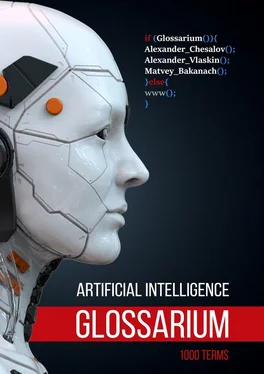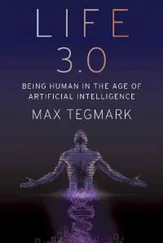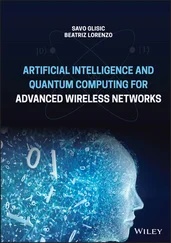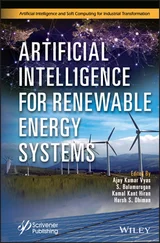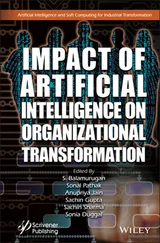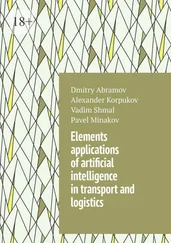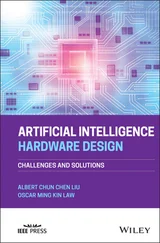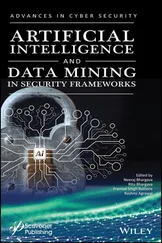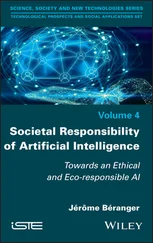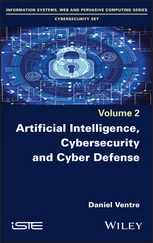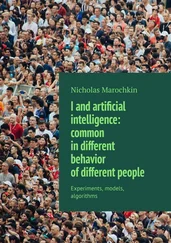Artificial Intelligence Glossarium: 1000 terms
Alexander Chesalov
Alexander Vlaskin
Matvey Bakanach
Illustrator Abidal | Dreamstime.com
© Alexander Chesalov, 2022
© Alexander Vlaskin, 2022
© Matvey Bakanach, 2022
© Abidal | Dreamstime.com, illustrations, 2022
ISBN 978-5-0059-0164-4
Created with Ridero smart publishing system
Alexander Yurievich Chesalov,
Vlaskin Alexander Nikolaevich,
Bakanach Matvey Olegovich
Experts in information technology and artificial intelligence, developers of the program of the Center for Artificial Intelligence, the programs “Artificial Intelligence” and “Deep Analytics” of the project “Priority 2030” of the Bauman Moscow State Technical University in 2021—2022.
Good afternoon, dear Friends and Colleagues!
The last couple of years for us, the authors of this book, have been not only “hot”, but also generous with various events and activities.
Undoubtedly, the most significant event for us that took place in 2021 is participation in the Competition held by the Analytical Center under the Government of the Russian Federation for the selection of recipients of support for research centers in the field of artificial intelligence, including in the field of “strong” artificial intelligence, trusted artificial intelligence systems and ethical aspects of the use of artificial intelligence. We were faced with an extraordinary and still at that time unsolved task of creating a Center for the Development and Implementation of Strong and Applied Artificial Intelligence of the Bauman Moscow State Technical University. All the authors of this book took a direct part in the development and writing of the program and action plan of the new Center. You can learn more about this story from Alexander Chesalov’s book How to Create an Artificial Intelligence Center in 100 Days. You can also find information about it on the chesalov.com blog and ridero.ru website.
The first international forum “Ethics of artificial intelligence: the beginning of trust”, which took place on October 26, 2021, and within the framework of which the solemn signing ceremony of the National Code of Ethics of Artificial Intelligence was organized, which establishes general ethical principles and standards of behavior that should guide the participants in relations in the field of artificial intelligence in his activities, also had a certain influence on us. In fact, the forum became the first specialized platform in Russia, where about one and a half thousand developers and users of artificial intelligence technologies discussed steps to effectively implement the ethics of artificial intelligence in priority sectors of the economy of the Russian Federation.
We did not pass by the AI Journey International Conference on Artificial Intelligence and Data Analysis, within which, on November 10, 2021, IT market leaders joined the signing of the National Code of Ethics for Artificial Intelligence. The number of conference speakers was amazing – there were more than two hundred of them, and the number of online visits to the site was more than forty million.
Summarizing our active work over the past couple of years, the experience that has already been accumulated, we can say that wherever we discuss the topic of “artificial intelligence”, there have always been heated debates among the participants of certain events, among various specialists and scientists, what is, for example, “strong artificial intelligence” (“Artificial general intelligence”) and how to translate and interpret the word “general” – (“strong” or “general”, or maybe “applied”? There have been many disputes over the definition of the term “trusted artificial intelligence” and many others.
Undoubtedly, we have found answers to these and many other questions of interest to a wide range of specialists.
For example, we have defined for ourselves that Artificial Intelligence is a computer system based on a complex of scientific and engineering knowledge, as well as technologies for creating intelligent machines, programs, services and applications (for example, machine learning and deep learning), imitating human thought processes or living beings, capable of perceiving information with a certain degree of autonomy, learning and making decisions based on the analysis of large amounts of data, the purpose of which is to help people solve their daily routine tasks.
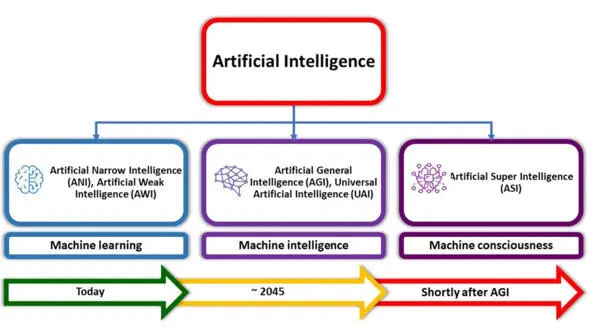
Or, one more example. We have determined that the Trusted Artificial Intelligence System is a system that ensures the fulfillment of the tasks assigned to it, taking into account a number of additional requirements and / or restrictions that ensure confidence in the results of its work:
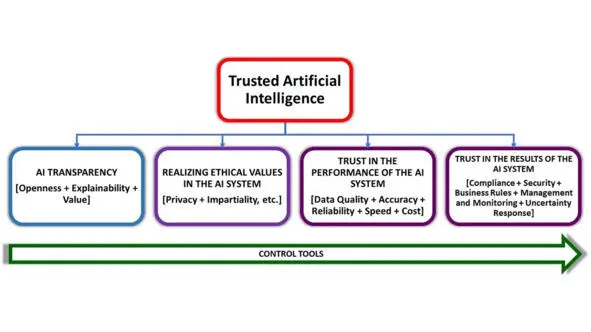
And also the fact that Machine learning is one of the areas (subsets) of artificial intelligence, thanks to which the key property of intelligent computer systems is embodied – self-learning based on the analysis and processing of large heterogeneous data. The greater the amount of information and its diversity, the easier it is for artificial intelligence to find patterns and the more accurate the result will be.
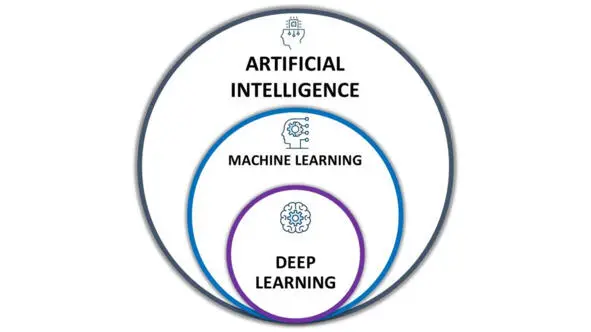
And the fact that machine learning is a very interesting, multifaceted and relevant area of science and technology:
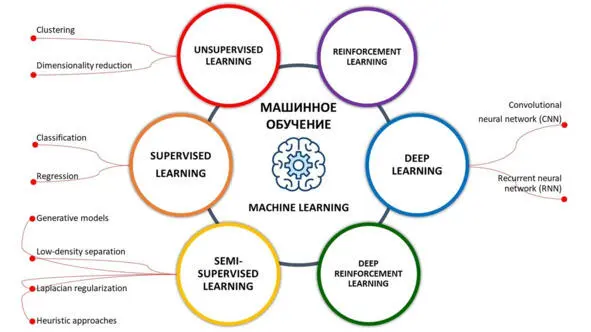
Have you ever heard of “Transhumanists”?
On the one hand, as an idea, Transhumanism is the empowerment of man through science. On the other hand, it is a philosophical concept and an international movement, whose adherents wish to become “post-humans” and overcome all kinds of physical limitations, illness, mental suffering, old age and death through the use of the possibilities of nano- and biotechnologies, artificial intelligence and cognitive science.
In our opinion, the ideas of “transhumanism” intersect very closely with the ideas of “digital human immortality”.
Undoubtedly, you have heard and, of course, you know who a “Data Scientist” is – a scientist and data scientist.
Have you ever heard of “data-satanics”? :-)
Data Satanistsis a definition invented by the authors, but reflecting modern reality (along with, for example, the term “infogypsyism”), which developed during the period of popularization of the ideas of artificial intelligence in the modern information society. Data Satanists are people (essentially scammers and criminals) who very skillfully disguise themselves as scientists and specialists in the field of AI and ML, but at the same time use other people’s merits, knowledge and experience, for their own selfish purposes and for the purposes of illegal enrichment. Their actions can be interpreted under Article 159 of the Criminal Code of the Russian Federation Fraud, Article 174 of the Criminal Code of the Russian Federation Legalization (laundering) of money or other property acquired by other persons by criminal means, Article 285 of the Criminal Code of the Russian Federation Abuse of official powers, Article 286 of the Criminal Code of the Russian Federation Abuse of official powers, etc.
Читать дальше
